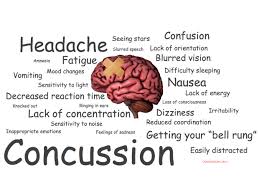
Concussion Supportive Therapy
Concussions are a common injury in sports, and they can have serious consequences if not managed properly. They can lead to headaches, dizziness, and even memory loss. However, with the right treatment and support, athletes can get back to doing what they love. That’s where concussion supportive therapy comes in. This specialized therapy is designed to help athletes recover from a concussion and get back in the game. In this blog, we’ll explore how concussion supportive therapy works and how it can benefit athletes of all levels.
A Comprehensive Guide to Concussion Supportive Therapy for Athletes
A Comprehensive Guide to Concussion Supportive Therapy for Athletes is an invaluable resource for any athlete or their coach, family, or medical provider. This guide provides insight into the various aspects of concussion management including prevention, recognition, diagnosis, treatment, and post-concussion syndrome. It also provides information on the most up-to-date concussion supportive therapy and best practices for athletes. This comprehensive guide is an essential tool for any athlete or their support system, providing them with the necessary knowledge and understanding to properly manage a concussion and its associated symptoms. With its comprehensive approach, this guide is a must-have resource for any athlete or any individual involved in an athlete’s care.
Unlocking the Benefits of Concussion Supportive Therapy for Athletes in Recovery
Concussion supportive therapy (CST) is a unique form of treatment that focuses on helping athletes in recovery from a concussion by providing support, information, and tools to help them return to their pre-injury activity levels and improve their overall mental wellbeing. CST is an evidence-based and effective form of treatment that can help athletes better understand their injury, manage their symptoms, and improve their quality of life.
The goal of CST is to provide the athlete with the tools they need to successfully manage the physical and psychological symptoms that come with a concussion, and to help them return to their former level of activity and functioning. It is important to note that concussion supportive therapy is not a cure-all and is not intended to replace traditional medical care. Instead, it is an adjunctive treatment option that can be used to supplement traditional medical care.
Concussion supportive therapy can be provided in various forms, including individual and group sessions, depending on the needs and preferences of the athlete. In general, CST will include education about concussion symptoms and management, cognitive and physical rest, lifestyle modifications, and cognitive and emotional support. Additionally, CST can help athletes develop strategies to cope with their symptoms and adjust to their new reality.
The benefits of concussion supportive therapy for athletes in recovery are numerous. It can help athletes better understand their injury and learn how to manage their symptoms, ultimately improving their quality of life and helping them return to their pre-injury activity levels. Additionally, CST can provide athletes with emotional support, helping them cope with the stressors that come with a concussion. Finally, CST can help athletes build resilience, providing them with the strength and tools they need to better manage their symptoms and return to their pre-injury activities.
Overall, concussion supportive therapy is an important and beneficial form of treatment for athletes in recovery. It can help them better understand their injury and learn how to manage their symptoms, ultimately improving their quality of life and helping them return to their pre-injury activity levels. It is important to note that CST should not replace traditional medical care, but rather be used as an adjunctive treatment option to supplement it.
How Concussion Supportive Therapy Can Help Get Athletes Back on the Field?
Concussion supportive therapy can play an important role in helping athletes get back on the field after a concussion. This type of therapy focuses on the physical, cognitive, and emotional effects of a concussion, helping athletes to recognize and manage the symptoms of a concussion. Through counseling, cognitive exercises, and relaxation techniques, athletes can develop skills to better manage symptoms and return to the game as quickly and safely as possible. Concussion supportive therapy can also help athletes understand the importance of reporting symptoms to their coaches and medical staff, and provide support to their families as they go through the concussion recovery process. Ultimately, this type of therapy helps to ensure that athletes are able to make a full recovery and return to the field with a better understanding of the risks associated with concussions.
Maximizing Athletic Performance with Concussion Supportive Therapy
Concussion supportive therapy is an effective approach to maximizing athletic performance. This therapy helps athletes to manage their symptoms, reduce the risk of further injury, and improve overall physical and mental health. It can also help to reduce the risk of long-term effects of concussion, such as cognitive and emotional issues. Concussion supportive therapy can include cognitive behavioural therapy, relaxation techniques, and physical therapy. It is important for athletes to receive professional treatment for their concussion as soon as possible to maximize their athletic performance. With the right support and guidance, athletes can get back on the field and perform at their best.
Conclusion
Concussion supportive therapy can help athletes get back in the game by providing them with the tools and resources they need to manage their symptoms and return to their sport in a safe and effective manner. The therapy can help athletes understand the importance of recognizing and responding to the signs and symptoms of a concussion, and provide them with the strategies and strategies to return to play in a safe and healthy manner. With the right support, athletes can successfully return to their sport and resume their activities without fear of further injury.
Write and Win: Participate in Creative writing Contest & International Essay Contest and win fabulous prizes.
https://monomousumi.com/acoustic-panels-why-should-you-choose-them/


